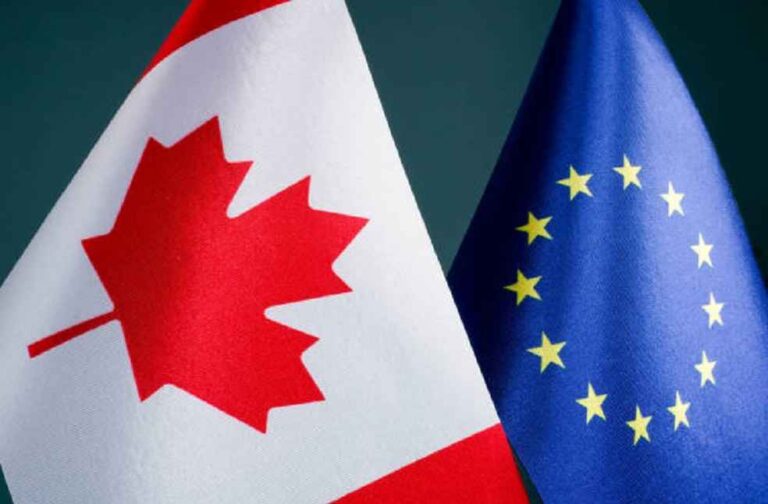To catalyze the ratification process of the Comprehensive Economic and Trade Agreement (CETA) between the European Union and Canada, Brussels has introduced a novel interpretation of the treaty’s clauses related to investor protection from environmental regulation.
This move seeks to mollify EU member states’ apprehensions regarding potential investor lawsuits over enhanced environmental legislations, thereby facilitating the enactment of this pivotal multibillion-euro accord. Since its provisional application in 2017, CETA has encountered ratification delays from ten EU nations, despite accolades from the Commission as the epitome of modern and sophisticated trade agreements.

EU Trade Commissioner Valdis Dombrovskis, with Canadian Trade Minister Mary Ng, delineated these modifications at a press briefing in Brussels, highlighting the explicit clarification of terms to ensure sovereign environmental regulatory rights without amending the agreement. This elucidation serves as a critical element for EU states on the cusp of ratification, with Germany’s Bundestag giving its nod in December 2022.
The refined interpretation aims to rectify past expansive interpretations by tribunals of the ‘fair and equitable treatment’ clause towards foreign companies. It also introduces streamlined access for small and medium-sized enterprises (SMEs) to the investment court system, marking a significant stride as an additional 2,500 European SMEs have initiated exports to Canada post-CETA implementation.

Since its inception, the agreement has dramatically deepened trade relations between the EU and Canada, witnessing a 66% uptick in bilateral goods trade since 2016 and the abolition of duties on 98% of tariff lines. European exports to Canada now bolster 700,000 EU jobs, a notable rise from pre-CETA figures. With the EU’s strategic pivot from Russia and China, Canada has become an indispensable ally, providing critical energy and raw materials, evidenced by a surge in EU imports from Canada across various sectors since 2016.
Dombrovskis stressed the urgency of CETA’s ratification to dispel uncertainties and adapt the agreement to future exigencies. As the global trade environment evolves, ratifying CETA emerges as a prerequisite for staying abreast of international trends and securing the EU’s strategic leverage in trade and environmental stewardship.
IMEX SECTOR | Russian Wheat Lands in Bizerte Port, Bolsters Global Grain Trade



